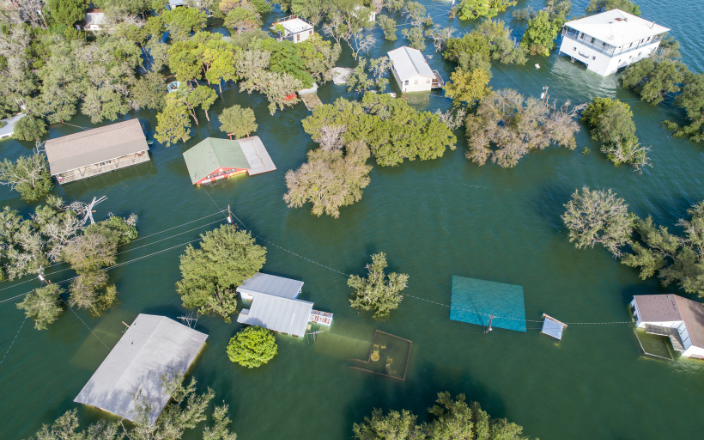The Brazilian state of Rio Grande do Sul has faced a devastating series of floods that have had a significant impact on livestock and meat production. Heavy rains have submerged entire towns, causing major losses for both pig farmers and poultry producers, and forced meat packers to halt all or part of operations at 10 pork or poultry plants in Rio Grande do Sul, Brazil’s southernmost state, ABPA said on Monday.
The meat lobby group said in a statement that the affected plants have been trying to process raw material and transport employees to the factories, which face “extreme problems” to operate.
Videos circulating on social networks show dozens of dead pigs in the Roca Sales region, in the Taquari river valley, one of the hardest hits by heavy flooding in recent days. The animals drowned in their sheds or were swept away by strong currents, said Flauri Migliavacca, a veterinarian who verified the videos and owner of an animal feed factory in the city of Casca.
Migliavacca said large meatpackers asked for his help to deliver feed to farmers in some of the affected areas, which can only be reached by smaller vehicles via alternative dirt roads.
Losses in pig farming:
- Pig farmers in Rio Grande do Sul have suffered enormous losses. It is estimated that around 12,600 pig heads were lost due to the floods. These losses affected about 30 farms, including major suppliers such as BRF and JBS.
- The state represents 24.2% of Brazil’s total pork exports, underscoring the magnitude of the impact on the industry.
Losses in poultry farming:
- The ASGAV group, which represents local poultry processors and breeders, reported that approximately 279,000 poultry destined for slaughter, as well as 150,000 laying hens, died. Additionally, four meat processing plants were paralyzed.
- Rio Grande do Sul is also a significant exporter of chicken meat, accounting for 16.2% of Brazil’s total chicken exports.
Impact on infrastructure:
- Production centers face not only structural losses but also extreme difficulties in water supply, electricity, and telecommunications. Ten poultry and pig slaughterhouses are either paralyzed or experiencing significant challenges due to the inability to process or transport employees.
- The port of Rio Grande, vital for pork and chicken exports, was also affected by floods and landslides, blocking roads, and affecting the rail link to its terminals.
In summary, the floods in southern Brazil have had a devastating impact on the livestock industry, affecting both pig farmers and poultry producers. Recovery will be a challenge, but the agricultural community is united in its effort to overcome this crisis.
Sources: Available upon request.

